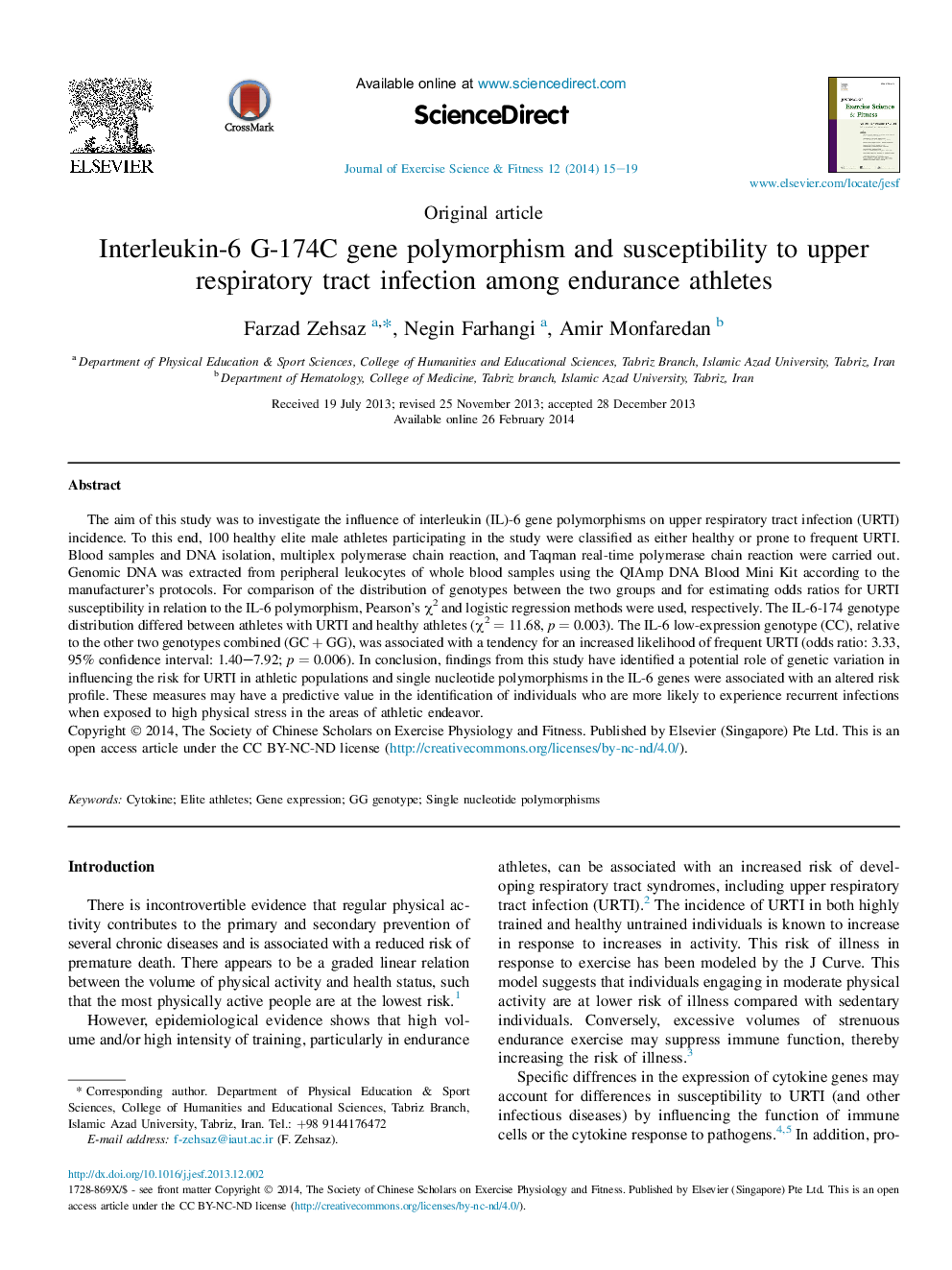| Article ID | Journal | Published Year | Pages | File Type |
|---|---|---|---|---|
| 2739656 | Journal of Exercise Science & Fitness | 2014 | 5 Pages |
The aim of this study was to investigate the influence of interleukin (IL)-6 gene polymorphisms on upper respiratory tract infection (URTI) incidence. To this end, 100 healthy elite male athletes participating in the study were classified as either healthy or prone to frequent URTI. Blood samples and DNA isolation, multiplex polymerase chain reaction, and Taqman real-time polymerase chain reaction were carried out. Genomic DNA was extracted from peripheral leukocytes of whole blood samples using the QIAmp DNA Blood Mini Kit according to the manufacturer's protocols. For comparison of the distribution of genotypes between the two groups and for estimating odds ratios for URTI susceptibility in relation to the IL-6 polymorphism, Pearson's χ2 and logistic regression methods were used, respectively. The IL-6-174 genotype distribution differed between athletes with URTI and healthy athletes (χ2 = 11.68, p = 0.003). The IL-6 low-expression genotype (CC), relative to the other two genotypes combined (GC + GG), was associated with a tendency for an increased likelihood of frequent URTI (odds ratio: 3.33, 95% confidence interval: 1.40–7.92; p = 0.006). In conclusion, findings from this study have identified a potential role of genetic variation in influencing the risk for URTI in athletic populations and single nucleotide polymorphisms in the IL-6 genes were associated with an altered risk profile. These measures may have a predictive value in the identification of individuals who are more likely to experience recurrent infections when exposed to high physical stress in the areas of athletic endeavor.
